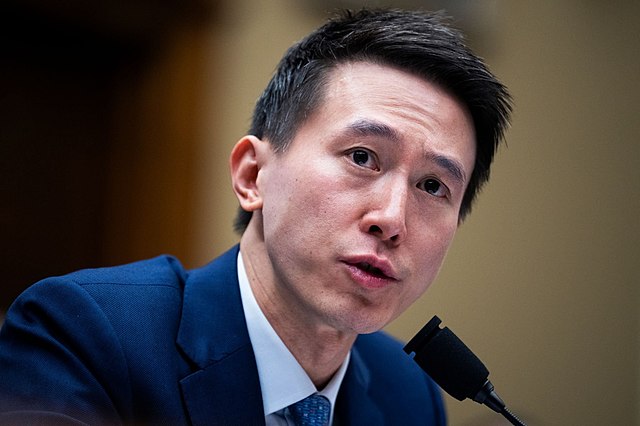Lisowski: TikTok and Congress competence
April 6, 2023
TikTok is making waves in our news cycle, and Congress is trying to ban the platform in the U.S.
Last month, the U.S. Congress questioned TikTok CEO Shou Zi Chew during a House Energy and Commerce Committee hearing – a move prompted by growing momentum on Capitol Hill to ban the app over national security concerns. Unfortunately, it made me question whether Congress is competent enough to handle TikTok data concerns.
Much of the hearing focused on privacy, addictiveness, media manipulation and Chinese data collection. The latter of the four is what I’ll be focusing on most.
Chew was relentlessly questioned by the committee with bad questions that seemed to outweigh the good. Most of which asked Chew to respond in a yes or no fashion.
While, yes, I understand that the committee wants to hear clear-cut yes or no answers, I want to beg the question: Why doesn’t Congress ask clear yes or no questions?
This was most concerning to me, more so than the assumption that China is spying on us through the big, bad wolf – TikTok. Their questioning didn’t tell me much about Chew and his company. It was almost rhetorical. When Chew was asked a question, he was frequently shot down with an ‘It’s a yes or no Mr. Chew’ or an ‘I’ll take that as a no.’
For Congress to make such a decision to ban an app that has over 150 million users in the U.S., without letting the CEO of the company respond to the questions being asked of him, is irresponsible. Especially because he offered meaningful changes to where TikTok will store its data and who can access it. However, it fell on deaf ears.
And, if the U.S. is so worried about the manipulation of media influencing users on the app, then why do nearly all news outlets have a Tiktok account to pump out information to the public?
It’s contradictory.
Private companies can do whatever they want to expand their reach, but doesn’t it make sense for the government to at least nudge our media in the right direction of maybe not promoting the idea of creating misinformation? There’s already enough ‘news’ floating around the web that could give readers the wrong idea.
I believe that our worry about the app is far-fetched. The CEO and company have most likely come in good faith, because missing out on the revenue of 150 million people is costly. After all, it is business.
In a world where almost our entire lives are advertised on the internet, I’m sure the Chinese government will find a way to obtain mass amounts of data about our population, but it won’t be from TikTok.
If it’s so hard to believe that an executive of TikTok – a multibillion-dollar company – will listen to the U.S. government and prevent Chinese intervention with our data, then Facebook, Snapchat, Instagram and nearly all other social media platforms should be monitored to the highest degree or banned too. Not that they are Chinese companies, but because they probably know more about us than we’d like.

















